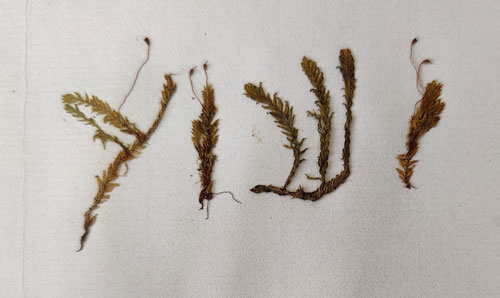Envisioning change – learning from the past to inspire new thinking about the future with the National Trust at Quarry Bank
Principal Investigator: Dr. Joanne Tippett, SEED

- Co-Investigator: Dr. Melanie Giles, SALC
- Research Associates:
- Jamie Farrington, SALC
- Nye Merrill-Glover, SALC
- Matthew Sanderson, SEED
Envisioning change tells a story of environmental change before and after the industrial revolution, both positive changes for humanity and unintended consequences. It draws on the John Rylands archives and features in the landscape to set the local story in the 4.55 billion-year history of the earth to inspire new ways of thinking and acting towards sustainable futures.
The story of sustainability will be told by tracing shifts in the landscape, energy regimes and chemical innovation related to the cotton industry, inspired by the RoundView framework of sustainability, which shows us how we can reorganise they ways we meet our needs in order to fit within natural systems, and avoid unintended consequences. It makes use of collections in the John Rylands related to the landscape surrounding Quarry Bank (QB) in order to understand historical environmental change and historical forms of sustainability.
This project provides the research underpinning for a major piece of new art and exhibit at the National Trust at Quarry Bank, entitled Unintended Consequences and curated by Future Everything, which will run from May-December 2022. Dr Jen Southern, an artist and lecturer in Fine Art at Lancaster University, has been commissioned to fill the upper story of the mill at Quarry Bank with art inspired by these new ways of thinking about sustainability and materials from the archives and landscape that illuminate this story. Her recent work has used deep-learning algorithms to create moving video from connected, but not necessarily sequential, still-images. The resulting video often creates a feeling of movement or growth.
A number of collections in the John Rylands archives are of interest, covering the RoundView’s key themes of Overwhelming versus balancing of natural flows of materials (e.g. CO2 from burning coal), Poisoning nature and wildlife with materials that doesn’t belong versus making human made materials safe for nature or using them again and again (e.g. plastics / synthetic dyes) and Damaging versus restoring ecosystems (e.g. estate management documents setting out stipulations for tree planting and maintenance, and historic maps which show changes to the landscape).
Going further back in time, the project explores ancient discoveries (such as the Neolithic and Bronze Age farmstead at Oversley, under the current airport), the mercurial behaviour of the bog (recorded in 'bog bursts' at Chat Moss), and the tensions around resources from the mosslands (seen the papers of the Grey and Stanley mill-owning families at Quarry Bank), in landscapes otherwise seen as marginal and unproductive compared with their dryland counterparts. Archival material from the John Rylands collection will help tell a long-term story of how and when the landscape around Quarry Bank has been implicated in different historical forms of sustainability.
This is an interdisciplinary project, bringing together environmental managers from the School or Environment, Education and Development (SEED) and historians and archaeologists from the School of Arts, Languages and Cultures (SALC) at The University of Manchester.
Working with partners, Carbon Landscape Project, the National Trust, Manchester Museum and Future Everything, the team is also developing a series of interactive, hands-on games that tell the story of sustainability. A series of games will be combined into a ‘Playing the RoundView’ exhibit that can be tailored to tell a local story of sustainability linked to the global story. These games will be tested and prototyped in heritage and landscape settings in the North West in 2022, with the aim of developing an open learning resource and toolkit that can be used to tell the story of sustainability and interpret a wide range of cultural settings across the UK and internationally.
Project funding
- John Rylands Research Institute and Library
- National Trust at Quarry Bank
- Carbon Landscape Project
